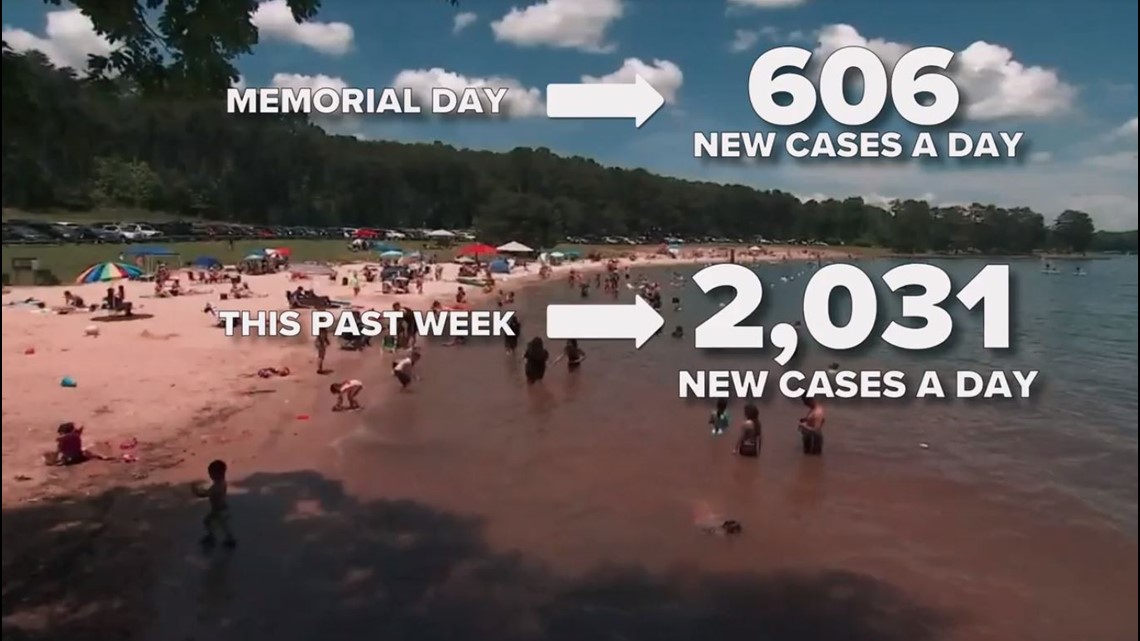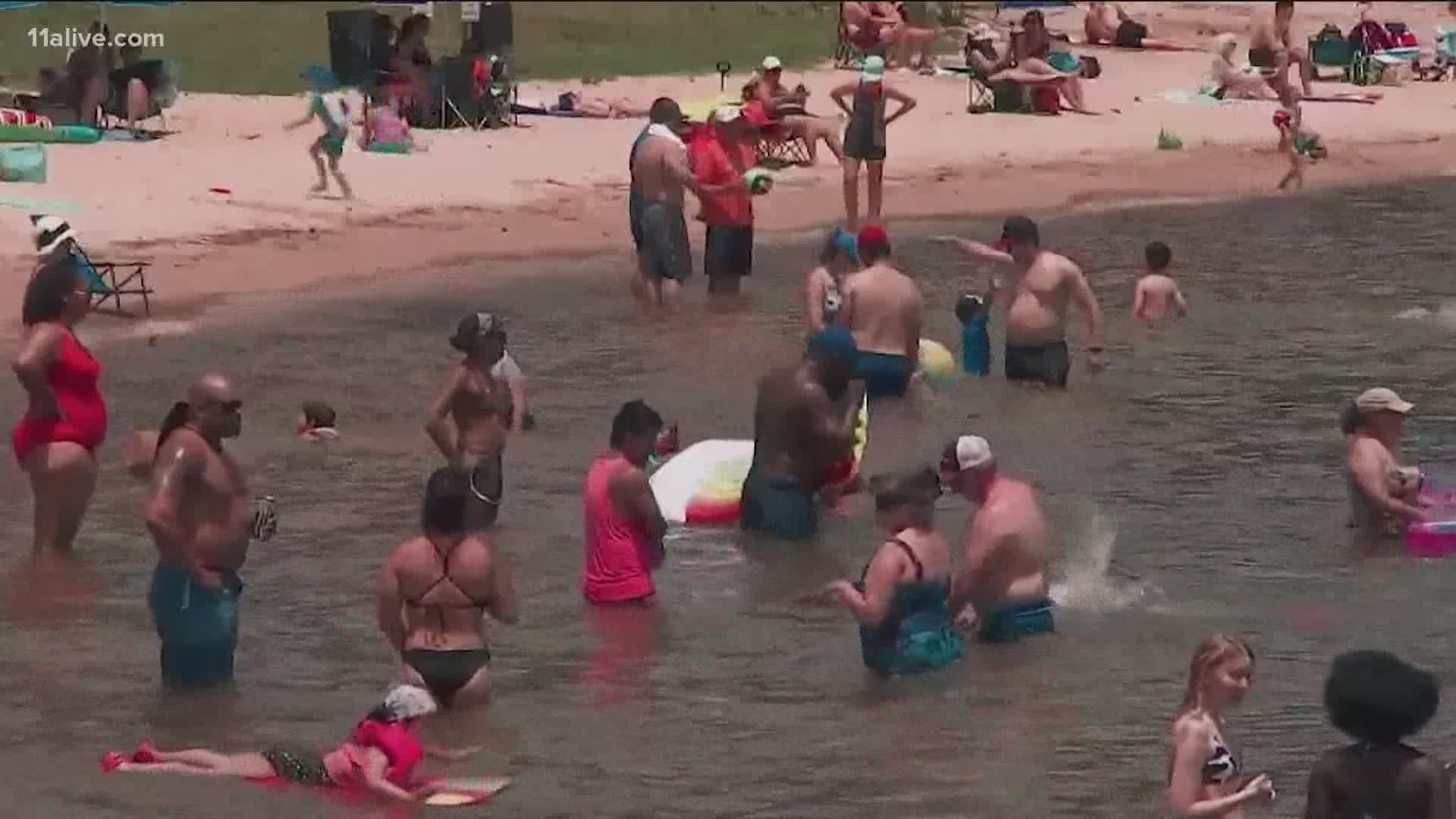ATLANTA — New COVID-19 cases and hospitalizations are improving each day in Georgia. That has many eagerly looking ahead to Labor Day. The three-day weekend is often considered the end of summer. Dr. Amber Schmidtke hopes it’s not the start to the coronavirus' next wave.
“I don't like to be the person that brings us bad news all the time. I just want to make sure that we're not doing this roller coaster repeatedly over and over again where things are up. Things are down," Dr. Schmidtke said.
The public health microbiologist has been writing about COVID-19's waves for months now. As a professor of infectious disease at Mercer University School of Medicine, she started a blog of sorts for family and friends.
“And now it has become sort of this whole animal that is beyond my control," Dr. Schmidtke said.
The doctor says there is good news in the data, but she’s encouraging caution. Heading into Memorial Day we were averaging 606 new cases a day. This past week, it was 2,031. That’s more than three times higher.


Given the incubation period and delays in testing, cases often don’t get reported until about two weeks after infection. If you use that timeline to track back to the start of the summer surge, Schmitdke says you land on Memorial Day.
“People started to come out of their shell, so to speak, and think that life was OK again and you could go back to normal," Dr. Schmidtke explained.
But the result of that summer fun in the sun was more than 227,000 new COVID-19 cases and 3,700 deaths.
“It seems that the areas that were hardest initially when the case surge began were along the Georgia borders or the Georgia coast. And a lot of them are noted for having the tourism or hospitality industry there," Dr. Schmidtke said.
That means locals got sick, and visitors took the virus home – sparking widespread community transmission. Dr. Schmitdke says for parents who want their children in the classroom this fall or adults trying to see their loved ones in long term care facilities, what happens this weekend could make the difference.
“The virus can't get to its next person without our help. It cannot move on its own. It has to have a human take it to its next host. And so anything that you can do to limit your transmission to others will interrupt the chain of infection," Dr. Schmidtke said.

